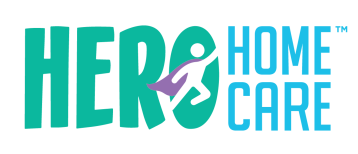This week, Mother Nature has shown us that summer is officially over. The leaves are falling, and the temperature is dropping fast. This also signals the start of cold and flu season in Vancouver.
With this in mind, prevention is key to navigating this season filled with sniffles and sneezes. This is especially important if you are a caregiver for your friend or loved one, especially if they are seniors or have an immunocompromised system.
Getting ill can undermine the health and well-being of everyone. This includes caregivers and those receiving care alike! If there is one thing the pandemic has taught us, it’s about being proactive and vigilant with our preventative measures to ensure everyone is safe and healthy.
Preventative Measures Matter
The Government of Canada has published a list of those most vulnerable to the effects of influenza. Extra precautions should be taken to avoid the spread of sickness when working with these populations:
- Adults over 65 years
- Children under five years
- Pregnant women
- Anyone with chronic health conditions or who has undergone recent surgery or medical procedures
- Residents in nursing or care homes and other healthcare facilities
- Indigenous peoples
Typically, individuals who require in-home care fall under these at-risk populations. This is why it’s so crucial to take as many preventative measures as possible to avoid illness. We often forget that the smallest acts can be done to prevent illness.
They may seem quite simple in action but are also extremely effective in ensuring you remain healthy during the cold and flu season:
- Wash hands frequently and with soap.
- Sanitize or clean shared surfaces.
- Cough or sneeze into your elbow or a tissue.
- Eat a healthy diet and get plenty of rest.
- Take vitamins to boost your immunity.
- Get a flu shot and stay up to date on your Covid-19 vaccinations.
In BC, to help prevent the spread of illnesses before you show symptoms, the BC government has recently reintroduced a mandate that masks be worn in healthcare facilities.
If you’re feeling only slightly run down or under the weather, you may still choose to provide caregiving to your loved one, but it’s important to take extra precautions if they’re vulnerable to sickness. This may mean wearing a mask and medical gloves, more regular sanitization, and avoiding direct patient contact as much as possible.
Why hiring a caregiver can provide continuity of care during cold and flu season
There are some scenarios where you would want to avoid any chance of spreading illness by staying at home (getting plenty of rest is essential to recovery, after all!).
Suppose you are in a situation where you, as a personal caregiver, are too ill to care for your family or loved one. In that case, you could hire a temporary nurse or aide for that time, especially if your loved one is reliant on the support you provide. While it may not be who they are used to or have developed a warm relationship with, it’s far better than you coming in and risking passing the virus.
Hero Home Care understands the risks associated with coming to work when sick and always takes extra precautions to keep themselves and their customers healthy, especially during cold and flu season. In addition to our in-home caregiver support, our Virtual Care platform provides patients access to a family doctor, virtual pharmacy, and our network of healthcare professionals. This gives you the support you need, even if you cannot provide the continuum of care because you are sick. We can often also assign a temporary caregiver for you in their absence.
We care about the health of our customers and our heroes. If you’re looking for in-home care, book a free Care Consult, and we’ll match you with the healthcare hero that meets your needs.

